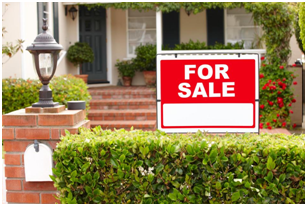The slowdown in the property market in London maybe due to new taxes and Britain’s impending exit from the European Union. Though this might seem like great news for home buyers, some challenges do remain. Saving up for a deposit still remains one of the biggest blocks for home ownership.
In such a scenario of volatility, it becomes all the more important to make sensible and informed decisions, where the real estate market is concerned. Do not be in a hurry to view a property in Cobham and buy a house that could be your home for several years, maybe even a lifetime. Have you made a checklist of all the things to keep in mind before making that big decision in 2019?
Let us help you with 4 essential factors to look at, though there are several more to keep in mind too.
A structurally sound building
Check to see if the property that you are looking at has a solid foundation. Look at the plans of the house. It might be a good idea to take the help of a professional while studying them. An architect or a builder might be able to help you in decoding the structure. When viewing the property, take them along to help you watch out for risks and improvement areas. One of the things that you might want to check out are cracks, especially near bay windows, extension joints, and walls.
Are there any damp areas in the ceilings and walls? If the property has been freshly painted, this could be a give-away sign for covering wet spots. Watch out for mouldy and damp smells and plaster that is peeling off.
Does the property serve your needs?
There is nothing like a perfect home. But there are properties that are nearly there and meet most of your needs. Find out if the rooms are large enough to house your family and pets if any. Will your existing furniture fit the new home? One of the tricks of home sellers is to use smaller furniture and make the rooms look larger than they are. So watch out for this.
Another area that is often overlooked is the storage area. Are there enough built-in cupboards, shelves and space to store your junk, linen, vacuum cleaner and the gym equipment that you have never used, but do not want to give away?
It might be a good idea to carry a compass while viewing the house, to find out the direction in which the property is facing. You do not want to end up with a house that is perennially dark in the summer, while you were expecting lots of light and warmth. It might not make so much of a difference in the winter, on cloudy days or in the night. But it is a completely different scenario in the warmer months. Another angle would be to spend some time in the house to find out how it pans out when the sun is out. Ending up in a furnace-like property is a total no-no.
Roofing and Plumbing
When viewing a property in Cobham, find out how old the roof is because replacing it would turn out to be very expensive. It might also be a good idea to check the material used because different materials have different life expectancies.
Inspect the plumbing – if the taps have enough pressure, if the pipes are insulated if the radiators work and the age of the boiler.
The Neighbourhood
Check out the neighbourhood and find out if it meets all your needs – are the stores close by? Are there restaurants and pubs that might become overwhelming with their noise levels? Is there easy access to public transport? And most importantly, does the property give you a sense of home.



